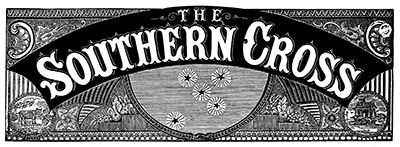Pseudoephedrine, a common ingredient in cold and flu medicines, will be available over the counter again in New Zealand, after being banned for more than a decade due to its use in making methamphetamine.
The controversial policy change was announced by the new coalition government, led by National’s Christopher Luxon, with support from New Zealand First and Act. The Minister for Regulation, Act leader David Seymour, said the ban had failed to curb the meth problem in the country, and had only caused inconvenience and suffering for ordinary Kiwis who needed effective decongestants.
“Methamphetamine is a scourge on our society, but banning pseudoephedrine did not stop the gangs from making it or the addicts from using it. It only made life harder for law-abiding citizens who wanted to treat their colds and flus,” Seymour said.
He cited a report by the New Zealand Drug Foundation, which found that meth use had increased by 50% since the ban was introduced in 2011, and that New Zealand had one of the highest rates of meth consumption in the world. He also pointed out that pseudoephedrine was still legal and widely available in many other countries, such as Australia, the UK, and the US.
However, the decision has been met with skepticism and criticism from some pharmacists, who said they remembered the dangers and difficulties of dealing with pseudoephedrine before the ban. They said they had to deal with thefts, robberies, and threats from people who wanted to buy large quantities of the medicine, or who had fake prescriptions. They also said they had to keep detailed records of every sale, and report any suspicious activity to the authorities.
“Some of these people were very aggressive and violent. They would come in with guns or knives, or they would smash the windows and grab whatever they could. It was very scary and stressful for us and our staff,” said John Smith, a pharmacist in Auckland.
He also doubted that many pharmacies would choose to stock pseudoephedrine again, given the low demand and the high risk. He said most customers were happy with the alternative medicines that were available, such as phenylephrine, which had similar effects but could not be used to make meth.
“I don’t think there is a huge market for pseudoephedrine anymore. Most people have moved on to other products, or they have learned to cope with their symptoms. I don’t see why we should bring back something that caused so much trouble and harm in the past,” he said.
The government said it would monitor the situation closely, and review the impact of the policy change after a year. It also said it would continue to fight the meth problem by other means, such as increasing police resources, strengthening border controls, and providing more support and treatment for addicts.
“We are not giving up on the war on drugs. We are just changing our strategy and focusing on the real causes and solutions. We believe that by allowing pseudoephedrine back on the shelves, we are restoring the rights and freedoms of New Zealanders, and giving them more choice and responsibility over their own health,” Seymour said.

